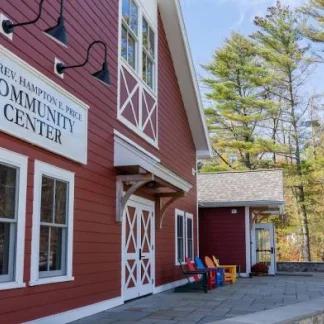Gould Farm
Monterey, Massachusetts, 100 Gould Road, 01245
Available Programs
- Adult program
- Elderly program
- Young adult program
Insurance and Financial
- Private insurance
- Self-pay options
- Sliding scale payment assistance
About this Facility
Gould Farm is a behavioral health treatment center situated on a 750 acre working farm in the Berkshire hills of western Massachusetts. It offers a full continuum of mental and behavioral health services to adults where they can receive comprehensive care from a team of dedicated professionals.
With a holistic and person centered approach, Gould Farm offers a therapeutic community in their residential environment where individuals can find solace, build meaningful connections, and engage in meaningful work.
Gould Farm provides residential treatment within a therapeutic community setting. Individuals reside on the farm, participating in a structured drug rehab program that combines therapeutic interventions, vocational work, and community engagement. This immersive approach fosters a sense of belonging and purpose, promoting healing and personal growth.
At Gould Farm, vocational work and therapeutic farming are integral components of the healing process. Individuals engage in meaningful work on the farm, such as gardening, animal care, or other farm related activities. This hands on experience fosters a sense of purpose, accomplishment, and connection to nature, enhancing overall well being and promoting personal growth.
Gould Farm provides access to psychiatric services and medication management for adults who may struggle with depression, bipolar disorder, schizoaffective disorder, schizophrenia, and other challenges. Their team of psychiatrists and medical professionals work closely with individuals to assess their needs, prescribe appropriate medications, and monitor their progress to support their overall well being.
Gould Farm emphasizes community integration and social support as key elements of mental health recovery. Individuals participate in community activities, engage in social interactions, and develop healthy relationships within the therapeutic community. This sense of belonging and connection helps individuals build resilience, self esteem, and interpersonal skills.
Contact us for more information: (413) 528-1804

Contact Gould Farm
Connect with Gould Farm by calling their admissions team directly.
(413) 528-1804 Website Get Directions